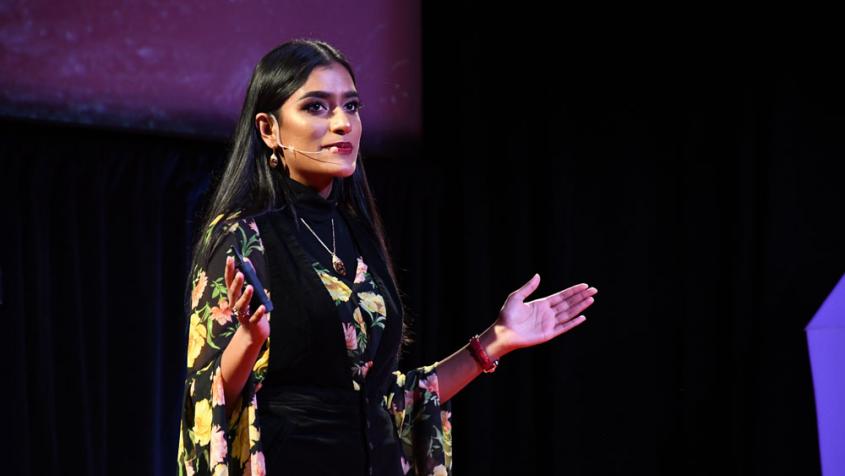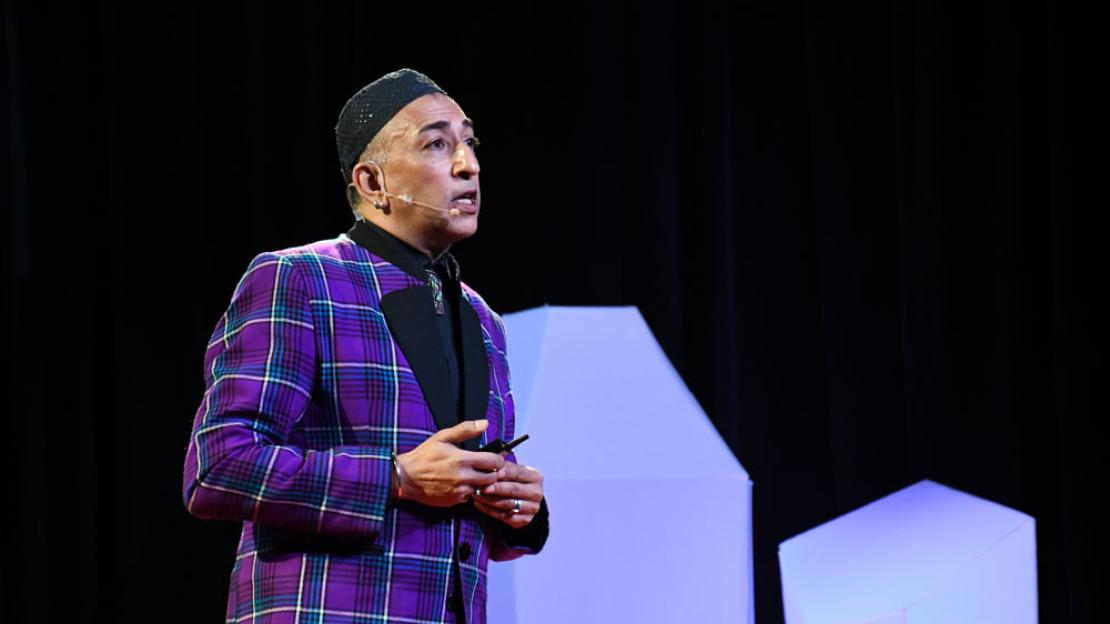This year’s installment of TEDxUTSC explored the topics that are often overlooked or ignored by society, including issues of gender-based violence, environmental crises, and youth empowerment.
The conference, titled “Unearthed,” included one particularly powerful story about overcoming adversity and inspiring others to do the same, whether they were facing stigma in their own community or in a new country.
“By day I’m a refugee lawyer defending LGBTIQ refugees and women fleeing gender-based violence. In my spare time I’m a founder and coordinating Imam at Toronto Unity Mosque, registered as el-Tawid Juma Circle,” said El-Farouk Khaki, who is gay and Muslim.
Khaki, whose family fled Tanzania in 1971, confessed in his speech that he grew up fearing that his sexuality made him unworthy of God’s love. Studying the Quran helped him realize that this wasn’t true and that hatred for queer folk was not taught by the prophet, but instead by interpreters of Islam.
“This lie assumes that Islam is a monolith, that there is only a singular, ahistorical understanding of Islam, and that it is not something that lived and breathed,” he said. “In fact, Islamic history is rich with traditions of non-binary – of queer – people. We know that the prophet’s house had mukhannath, who were feminine men, that had access to both women’s space and men’s space.”
Khaki has since merged his professional life with his personal one, using his law practice as a means to directly intervene in the persecution of queer and straight refugees, while offering them a space to pray without fear of judgement through his mosque.
Justice is what love looks like in public
Khaki told the story of a young woman who, like himself, was African, Muslim and gay. With Khaki’s aid, the woman was seeking asylum in Canada after being sold to an abusive husband by her father, who also beat her over her attraction to women. During his time with her, Khaki frequently saw the young woman break down, fearful that she had dishonored her family. Khaki reminded her of the story of Abraham, “where god tells us, respect your elders and your parents… but do not follow their ways if they are misguided,” he said.
“I told her that her father failed her, not that she had failed her father, because his obligation was to protect her and instead he exposed her to violence,” he added.
Khaki ended his talk by urging the audience to practice acceptance and consider civil rights initiatives in their communities if they want to inspire change. In paraphrasing famed activist Cornell West, Khaki closed by reminding the crowd that “Justice is what love looks like in public.”
Hundreds of students, educators, and activities attended the sixth annual installment student-run event that was held on Saturday, Jan. 27 in the Academic Resource Centre at U of T Scarborough.
Another speaker was Maria Raveendran, a U of T Scarborough undergrad with a “serious passion for fashion.” Her talk looked at the commonly held belief that clothes don’t make the (wo)man, and found the truth is far more nuanced than that.

Raveendran set out with the presumption that everyone – no matter how fashion forward – has an outfit that boosts confidence and influences the way in which they approach the day. But is this influence measurable and can it be useful when faced with cognitive challenges?
“I asked myself if I’d like to be seen by a date or potential employer in the clothes I’m wearing. It doesn’t have to be the same outfit but everyone has something they put on when they want to accomplish certain goals,” said Raveendran.
Professors at the Kellogg School of Management at Northwestern University had questions similar to Raveendran’s. Dr. Adam D. Galinsky and Dr. Hajo Adam described the theory of enclothed cognition after devising a series of tests to track the changes in cognitive ability brought on by clothing changes.
Participants were given the same coat, with one group believing they had a doctor’s lab coat, the other thinking they had a painter’s coat. The study found those wearing the lab coat scored 50% higher on average than those in the painter’s coat across various memory and attentiveness tests.
When the wearer associated a coat with a professional in a demanding line of work they took on the traits of that professional. Raveendran encouraged the audience to “find their lab coat,” or any outfit that emboldened them to take advantage of this subconscious superpower.
